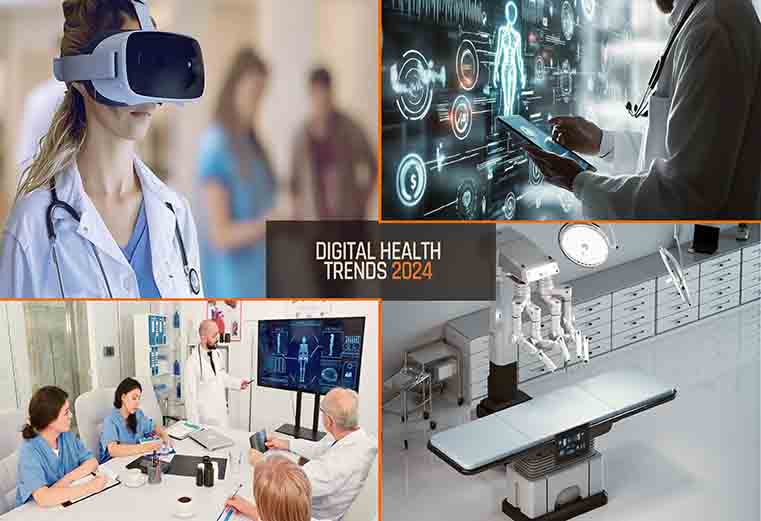In a groundbreaking move that promises to transform the landscape of healthcare technology, Suki has partnered with Google Cloud to enhance the capabilities and efficiency of clinician workflows. this collaboration aims to leverage advanced cloud solutions to create a seamless integration of artificial intelligence and healthcare data management. By utilizing Google Cloud’s robust infrastructure, Suki seeks to not only streamline the documentation process for healthcare providers but also improve patient outcomes through data-driven insights. Key components of this partnership include:
- AI-Powered Documentation: Employing AI algorithms to automatically capture and organize patient information, reducing the administrative burden on clinicians.
- Enhanced Data Security: Ensuring patient data is stored and managed with top-tier security protocols, given Google Cloud’s commitment to privacy and compliance.
- Interoperability: Facilitating better communication between different healthcare systems to create a unified patient care experience.
The technological integration is designed to empower healthcare professionals by providing them with tools that enhance not only their productivity but also their ability to provide personalized patient care. by harnessing the power of Google Cloud’s analytics capabilities,Suki will enable clinicians to gain deeper insights into patient data,facilitating more informed decision-making. This partnership is a significant stride toward a future where technology supports healthcare practitioners in delivering efficient, high-quality care, ultimately leading to an improved healthcare experience for patients and providers alike.
- Real-Time Analytics: Offering instant access to patient data for informed clinical decisions.
- Scalability: Allowing healthcare organizations to grow their technology solutions in line with evolving needs.
- Collaboration Tools: Promoting teamwork among healthcare professionals through shared data access and communication platforms.
Leveraging Cloud Capabilities to Improve Clinician Efficiency and Patient Care
In today’s rapidly evolving healthcare landscape, the integration of cloud technology has become a vital component in enhancing operational efficiency for clinicians. By partnering with Google Cloud, Suki aims to leverage advanced cloud capabilities that facilitate seamless access to patient data, enabling healthcare providers to make informed decisions swiftly. This shift towards robust cloud-based solutions allows for the democratization of clinical information, ensuring that clinicians can focus more on patient interaction rather than administrative tasks. Key benefits of this partnership include:
- Real-time Data Access: Clinicians can retrieve and update patient records from any device, reducing the time spent searching for information.
- Scalable Infrastructure: As healthcare institutions grow, the scalable nature of cloud services allows for the effortless integration of new technology.
- Enhanced Security: Google Cloud’s commitment to data security ensures that sensitive health information is protected, complying with industry regulations.
Moreover, the collaboration is set to bolster data interoperability, ensuring that various systems within a healthcare setting communicate effectively.This interoperability will streamline workflows and minimize the potential for errors that often accompany fragmented systems. As a result, clinicians can expect to spend less time on documentation and more time on what truly matters: delivering compassionate and effective patient care. Features like voice recognition and AI-assisted data entry are just a few of the innovations that can revolutionize how clinicians document interactions, thereby improving the overall efficiency and quality of care provided.
Exploring the Implications of Enhanced Data Security and Scalability in Healthcare
The partnership between Suki and Google Cloud marks a pivotal moment in redefining the landscape of healthcare technology. By leveraging cloud infrastructure, the collaboration promises a streamlined flow of critical patient data, allowing clinicians to access and share information more efficiently across platforms. The enhanced data security measures embedded in this partnership are not just about compliance; they are about instilling trust in patients and healthcare providers alike. In a field where sensitive information is constantly at risk, the robust security protocols aim to protect against cyber threats, thereby safeguarding the integrity of patient care. Moreover,the scalability of these cloud solutions offers unparalleled opportunities for healthcare organizations of all sizes. As demands for data management and storage continue to rise, providers can effortlessly scale their operations without the need for extensive hardware investments. This adaptability ensures that healthcare systems remain nimble and responsive to changes in patient needs and regulatory requirements. Key benefits include:
- Increased efficiency: Real-time data access enhances decision-making capabilities.
- Cost-effectiveness: Reduced need for on-site server maintenance lowers operational costs.
- Future-readiness: Ability to integrate emerging technologies such as AI and predictive analytics.
The synergy between Suki and google Cloud signals a decisive step towards an era where technology and healthcare harmoniously coexist,ultimately improving patient outcomes and operational performance.
 Future Directions: recommendations for Healthcare Providers to Maximize Tech Integration
Future Directions: recommendations for Healthcare Providers to Maximize Tech Integration
as healthcare continues to evolve, leveraging technology effectively will be essential for providers aiming to enhance patient care and streamline operations. To fully harness the benefits of advanced partnerships, such as Suki’s collaboration with Google Cloud, healthcare organizations should prioritize the following strategies:
- Invest in Training: Providers must ensure that their staff is adequately trained to utilize new technologies, focusing on ongoing education that keeps pace with rapid advancements.
- Enhance Interoperability: Integrating various tech platforms to allow seamless data exchange will help create a more cohesive patient experience and reduce administrative burdens.
- foster a Culture of Innovation: Encouraging feedback and open discussions about new tools will promote an environment that embraces change and enhancement.
- Prioritize Data Security: As reliance on technology increases,so does the importance of robust cybersecurity measures to protect sensitive patient information.
Along with these foundational elements, healthcare providers should also consider engaging with patients to better understand their needs and preferences regarding technology use. This can be achieved through:
- User-Centric Design: Ensuring that new software and applications are intuitive and user-friendly will promote confidence and adoption among both providers and patients.
- Feedback Mechanisms: Implementing regular surveys or focus groups will provide insights into how technology is impacting care and where further improvements can be made.
- Collaborative Growth: Partnering with tech companies early in the development phase can yield products that are more aligned with clinical needs and workflows.
